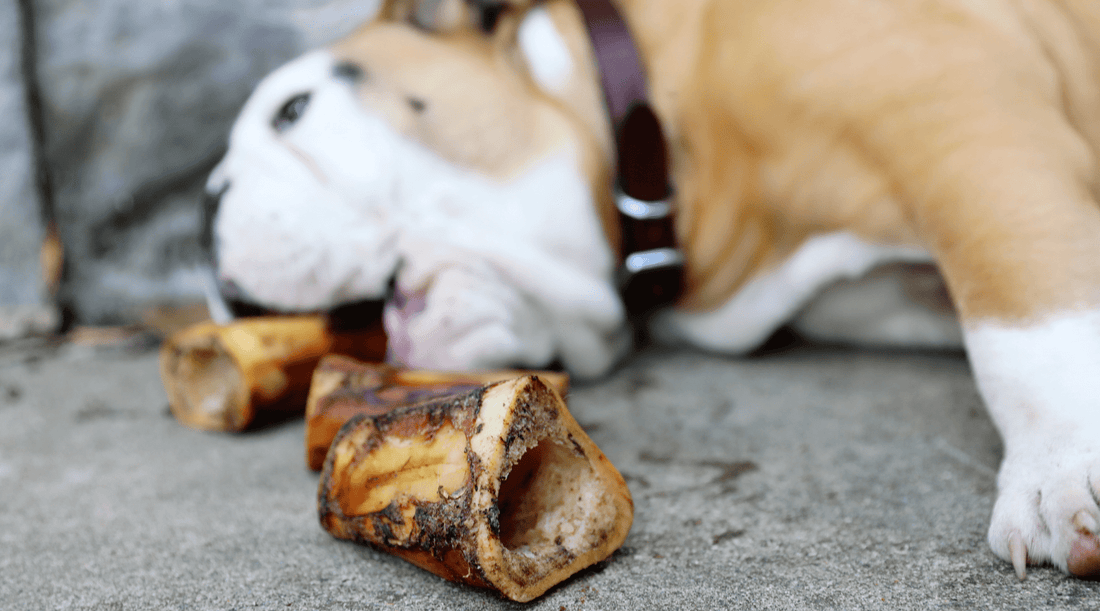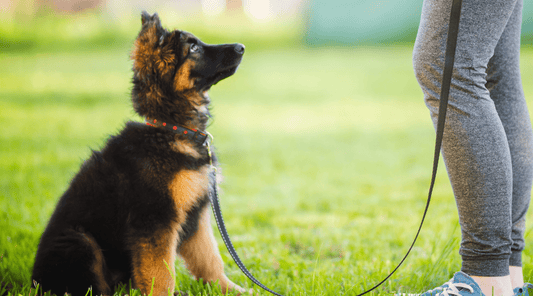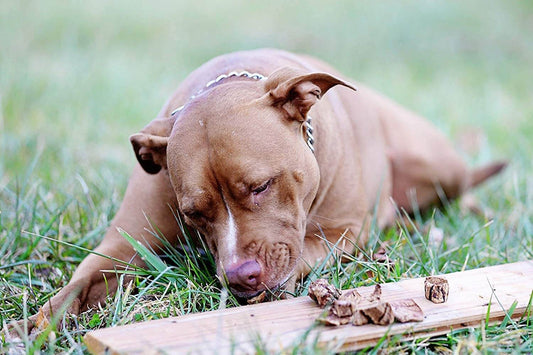
Is Raw Bone Marrow Good for Dogs? Superfood or Super Scary
Dawn Miller Oct 30, 20245 Minute ReadThe other night, my partner and I attended the neighborhood Halloween potluck, where we showed off our costumes, chatted about community events, met some new neighbors from across the country, and discussed the wide variety of home-cooked foods we would get to sample that night. One dish stole the show—a roasted marrow bone dish. Many at the event had never tried bone marrow and were unsure of what to think of it. For some, it was even spooky! It sat on the dish undisturbed until I decided I had to do something about it.
You know me. I walked right up to this delicacy, and it got my seal of approval—a perfect mix of sweet and buttery—the ideal complement to fresh-baked baguette toast. Seeing my enjoyment, soon everyone was joining in to try it (except a few vegetarians).
My dogs love marrow bones for dogs, too! But they wouldn't be getting any of these prepared for people. The roasted marrow bones went from being neglected to disappearing from the plate.
Is Raw Bone Marrow Good for Dogs?
Raw bone marrow is a powerhouse of nutrition for dogs. It's packed with several important nutrients that dogs may not otherwise get in their diet. It can be incredibly beneficial. These nutrients include ones that have known anti-inflammatory properties.
Those that support the digestive tract lining. Bone and joint-strengthening nutrients. And even those for healthy skin, hearts, immune function, and brain.
They're great for dog mental health, which, yes, that's a thing. Any dog mom knows that dogs have emotions. They can feel sad and get moody. They act anxious. So, anything I can do to support their wellness...I'm in.
So, for my dogs, marrow bones are not only a tasty reward but a healthy addition to their diet, giving them the added nutrition that may be lacking in overly-cooked kibble. I mean, I know kibble is veterinarian-approved to be nutritionally complete. But they cook that stuff to oblivion. And then it sits in a bag for weeks. It's definitely going to lose some nutrition. So, I like to supplement that with marrow-filled dog bones—raw or otherwise.
Now, I'm not particularly excited about giving my dogs raw food, especially since the American Veterinary Medical Association is against it. But I do appreciate marrow bones that have undergone a slow and low-heat cooking process. They retain almost all of the nutrition. But they are a little safer when it comes to raw food pathogens.
So, they're the perfect middle ground for my pups.
The Nutrition Breakdown in Marrow Bones for Dogs
So, what is all of this nutrition? For starters, there's collagen, a structural protein. Bone Marrow is one of the best places to get it. Collagen is important for healthy bones, joints, skin, and digestion. Healthier skin also leads to a shinier, smoother coat.
I remember bringing my terrier Pixie home from the local shelter where I volunteer. She had a dull, wirey coat—and very bad breath from a younger adult. Shhh. Don't tell her I said that.
But once she had been with our family for several months, getting spoiled with marrow bones 2-3 times a week, her coat completely changed...and her breath too. Chewing on marrow bones for dogs also helps dogs clean their teeth, lowering bad breath-causing bacteria by 60-80%.
Bone marrow also has a lot of healthy fat, particularly the good stuff, omega 3, if you buy grass-fed dog bones. Those come from beef cattle, by the way. They're not really bones from bones.
These bones are also loaded with B12, vitamin E, calcium, iron, and even some vitamin C, which isn't present in muscle meat. But it's abundant in bone marrow and organ meats like beef lung treats.
One of the best things about giving your dog a marrow bone instead of just marrow is that they consume the marrow more slowly, not overindulging, and they get mental stimulation out of gnawing on a dog bone. That's important because while bone marrow is low calorie in the quantity normally consumed, it's also rich in omega 3, omega 6, and some saturated fat. These can upset tummies and lead to pancreas inflammation if my dogs are allowed to free-range these very special dog bones.
I discuss this topic more in this article: Too Much of a Good Thing.
Can Dogs Have Bones?
Dog bones are generally safe for dogs when they're the right kind of bone and prepared correctly. The American Kennel Club recommends against giving your dogs especially fatty bones, like ribs and pork bones.
Other types of bones that should be off the menu include chicken bones, turkey bones, and small mammal bones (rabbit, squirrel, etc.), which can shatter and cause blockages. Additionally, dinner bones and used bone broth bones are cooked to the point of being too soft.
Then rawhide is out too because those aren't even real bones—and I shared why you might want to avoid them in this article: A Tasting Party for My Pups.
For me, that leaves dog bones that have undergone a slow and low-heat cooking process.
Another safety precaution the AKC mentions is bone size. They say, "Give Large Breeds Large Bones" because if the bone is too small, they might try to swallow it whole and choke. Grass-fed beef cattle have some very big, sturdy bones. Big dogs are also often aggressive chewers who need dense bones.
Finally, it's a good idea to supervise and only let your dog have the bone for around 15 minutes, also an AKC recommendation. This ensures they don't overindulge in bone marrow in one sitting and allows the dog bones to last forever. Okay. Not really forever. But with my 3 dogs each getting their own meaty marrow bone, we can have 3 chew sessions a week. One bone can last for a month or more.
I also found this trick to get the marrow bone to last even longer. When the nutritious bone marrow is gone, I refill it with dog-approved treats like pumpkin puree, natural peanut butter (well-stirred), and plain Greek yogurt. I've got many fun dog bone refill ideas in my free downloadable guide.
Best Bones for Dogs
I mentioned some ones I wouldn't give my dogs for safety reasons. And I prefer not to give them raw bones, although I don't judge you if you do. They are slightly more nutritious, and I believe you should decide what's best for your fur babies, not some dog mom on the Internet who likes to talk about the best dog bones and treats.
With that said, I like to support small businesses. And I like to buy dog bones from USA-raised grass-fed beef ranches. This allows me to support local jobs and more sustainable livestock practices. Beef bones come from cattle processed for meat, so I'm helping them use the whole animal when I get meaty marrow bones for my dogs. K9Connoiseur checks all of my boxes for the best bones for dogs.
Available On:





